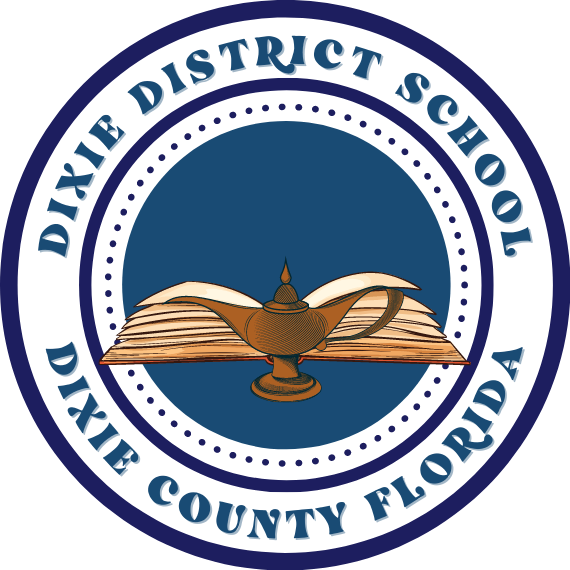CHAPTER 4.00 - CURRICULUM AND INSTRUCTION
4.13 Educational Media Materials Selection
I. Objectives of Selection - The primary objective of the school’s educational media center is to implement, enrich, and support the educational program of the school. The center shall provide a wide range of materials on all levels of difficulty, with diversity of appeal, and the representation of different points of view. The School Board asserts that the responsibility of the media center is to provide:
A. Instructional and supplemental materials that will enrich and support the curriculum, taking into consideration the varied interest, abilities, and maturity levels of the students served.
B. Materials that will stimulate growth in factual knowledge, literary appreciation, aesthetic values, and ethical standards.
C. A background of information enabling students to make intelligent judgments in their daily life.
D. Materials on opposing sides of controversial issues in order that students may develop, under guidance, the practice of critical analysis of all media.
E. Materials representative of the many religious, ethnic, and cultural groups and their contributions to the heritage and culture of America and the world.
F. A comprehensive collection appropriate for the users of the media center placing principle above personal opinion and reason above prejudice in the selection of materials of the highest quality.
II. Legal Responsibility for Selection. The School Board is legally responsible for all matters relating to the operation of the Dixie County Schools. The responsibility for the selection of educational materials, regardless of whether the book is purchased, donated, or otherwise made available to students is delegated to a school district employee who holds a valid educational media specialist certificate. School principals are responsible for overseeing compliance with school district procedures for selecting school library medial center materials. The School Board shall adopt and publish on its website the process for a parent to limit his or her student’s access to materials in the school or classroom library.
III. Parental Responsibility. Parents shall have the right to review materials in the media center and request that it be noted in the student’s library record that the student not be allowed to check our certain material.
IV. Criteria for Selection of Media Materials
A. The standards to determine the propriety of the educational materials shall be pursuant to Florida Statutes.
B. First consideration shall be given to the needs of the individual school based on knowledge of the curriculum, of the existing collection, and of the needs of children and youth. Requests from users of the collection (i.e., administrators, faculty, parents, and students) shall be given high priority.
C. Materials shall be considered on the basis of accuracy of content, overall purpose, timeliness, importance of the subject matter, quality of the writing/production, readability and popular appeal, authoritativeness, comprehensiveness of material, reputation of the publisher/producer, reputation and significance of the author/artist/composer/producer, format and price.
D. In determining the suitability and value of the material included in the collection, consideration of the following elements must be given;
1. Religion. Factual, unbiased material which represents all major religions
2. Ideologies. Factual information on any ideology or philosophy that exerts a strong force in society
3. Sex Education. Factual information, appropriate for the age group or related to the school curriculum
4. Sex. Pornographic (as defined or prohibited under F.S. section 847.012), sensational, or titillating materials shall not be included
5. Profanity. The fact that limited profanity appears in material shall not automatically disqualify a selection. However, care shall be taken to exclude materials using profanity in a lewd or detrimental manner and not in context with the material
6. Science. Factual information about medical and scientific knowledge, without any biased selection of facts.
E. Gifts of media or money shall be accepted with the understanding that their use or disposition shall be determined by those persons having the responsibility for acquisitions, according to the same selection criteria and procedures as purchased materials.
V. Procedures for Selection
A. In selecting materials made available to students through the district library media center, the school media specialist shall:
1. Consult with reputable, unbiased, professionally recognized reviewing periodicals and school community stakeholders (including, media staff, curriculum consultants, faculty, parents and community members).
2. Require that book selections meet the criteria set forth in s. 1006.40(3)(d), F.S.
3. Library media center collections will:
a. be based on reader interest;
b. support state academic standards and aligned curriculum
c. support the academic needs of students and faculty
4. When considering materials to be purchased, the media specialist shall follow these procedures:
a. Purchase materials which are outstanding and frequently used;
b. Periodically replace worn or missing basic items;
c. Withdraw out-of-date or unnecessary items from the collection or items required to be removed pursuant to subparagraph 2; and replaced by new and age appropriate materials;
d. Purchase materials in many types of format: digital, e-books, electronically, soft or hard bound.
e. Examine sets of materials and materials acquired by subscription; and purchase only materials to fill a definite need.
B. District elementary schools must publish on their school website, a list of all materials maintained in the school library media center or required as a part of a school or grade-level reading list.
VI. Challenged Materials. Library materials deemed by some persons to be objectionable may be considered by others to have sound educational value. Any concerned parent of a student in Dixie District Schools, Dixie County resident or employee of the district may request reconsideration of school library media. A county resident who is not the parent or guardian of a student with access to school district materials may not object to more than one material per month. When a complaint is made, the following procedure shall be followed:
A. The library media specialist shall discuss the matter informally with the complainant explaining the selection procedures for library media materials. If the complainant accepts the explanation given by the media specialist, the reconsideration process concludes.
B. If the explanation fails to resolve the objection, the principal will ask the complainant initiating the challenge to file, within 14 calendar days, a formal written objection by completing a “Request for Reconsideration of Library Media” form which must reflect that the complainant has read the material in full. Failure to do so results in the conclusion of the reconsideration process.
C. Upon receipt of the completed form "Request for Reconsideration of Library Media," the principal shall forward copies to the appropriate personnel on the School-level Review Committee (a committee of teachers, educational media specialists and parents of students that attend the school).
D. The challenged materials shall not be removed immediately; however, such materials shall not be available for student use pending a final decision. Any material that is not a course material required by section 1003.46 or 1003.42 challenged based on being pornographic or prohibited by F.S. section 847.012 or depicting or describing sexual conduct as defined in F.S. section 847.001(19), must be removed within 5 school days after receiving the objection and remain unavailable to students of that school until the objection is resolved.
E. The challenged materials shall be read and re-evaluated by the committee, considering the specific objections raised. The committee shall report its decision within fifteen (15) working days.
F. The Complainant shall be informed in writing concerning the school-level committee’s decision.
G. District Review Committee. If the Complainant disagrees with the decision rendered by the school-level committee, an Appeal may be filed with the District within 14 calendar days.
H. The Superintendent shall appoint a District Review Committee with the following composition:
1. One representative of the Public Library Board;
2. One representative of the general public at large; and
3. One representative of a school parent organization.
4. One principal from the level at which the complaint originated (K-5, 6-8, or 9-12).
5. Three school-level instructional staff members including the following: a. One media specialist from the level at which the complaint originated; b. One media specialist from another level; and c. One classroom teacher from the level at which the complaint originated.
6. Two district-level instructional staff members including the following: a. One district-level instructional staff member from the level where the material is in question; and b. The Supervisor of Technology and Instructional Media Services.
I. The Review Committee, in carrying out its assigned function, shall:
1. Read, view or listen to the material in its entirety;
2. Check general acceptance of the material by reading reviews and consulting recommended lists;
3. Determine the extent to which the material supports the curriculum; 4. Complete the "Checklist for Reconsideration of Library Media," judging the material for its strength and value as a whole and not in part; and 5. Forward, within fifteen (15) working days, a written recommendation to the Superintendent.
J. The Superintendent’s designee will inform the complainant and the school’s media specialist of the committee’s decision to retain or withdraw the challenged material as recommended by the District Review Committee.
K. If the complainant or the media specialist is dissatisfied with the District Review Committee’s decision, a written appeal may be filed with the Superintendent. Failure of the complainant to file a written appeal within 30 days of the District Review Committee’s decision will result in a conclusion of the reconsideration process and the decision of the District Review Committee shall be final.
L. The Superintendent shall, within 30 days of receipt of the appeal, send the complainant and the school media specialist a written decision. An appeal to the School Board of the Superintendent’s decision must be filed within 10 days after the Superintendent’s decision.
M. The School Board shall consider the decision of the District Review Committee and the Superintendent and any other appropriate documentation (i.e. meeting summaries, material reviews, etc.). The decision of the School Board regarding appropriateness of a particular Library Media material item will be considered final.
N. Library Media materials in question, can only be removed from circulation and/or used in the school district through the procedures of this policy.
STATUTORY AUTHORITY : 1001.41, 1001.42, F.S.
LAWS IMPLEMENTED: 847.001(19), 847.012, 1000.21, 1001.43, 1003.42, 1003.46, 1006.28; 1006.34(2)(b), 1006.40, F.S.
History: Adopted: January 14, 1999
Revision Date(s): August 14, 2007; February 9, 2010; October 11, 2022; January 11, 2024; October 8, 2024
Formerly:

Located in Cross City, Florida
Contact
Main Number
(352)541-6250
Superintendent’s Office
(352)541-6231
Digitally Designed by BramJam, LLC

